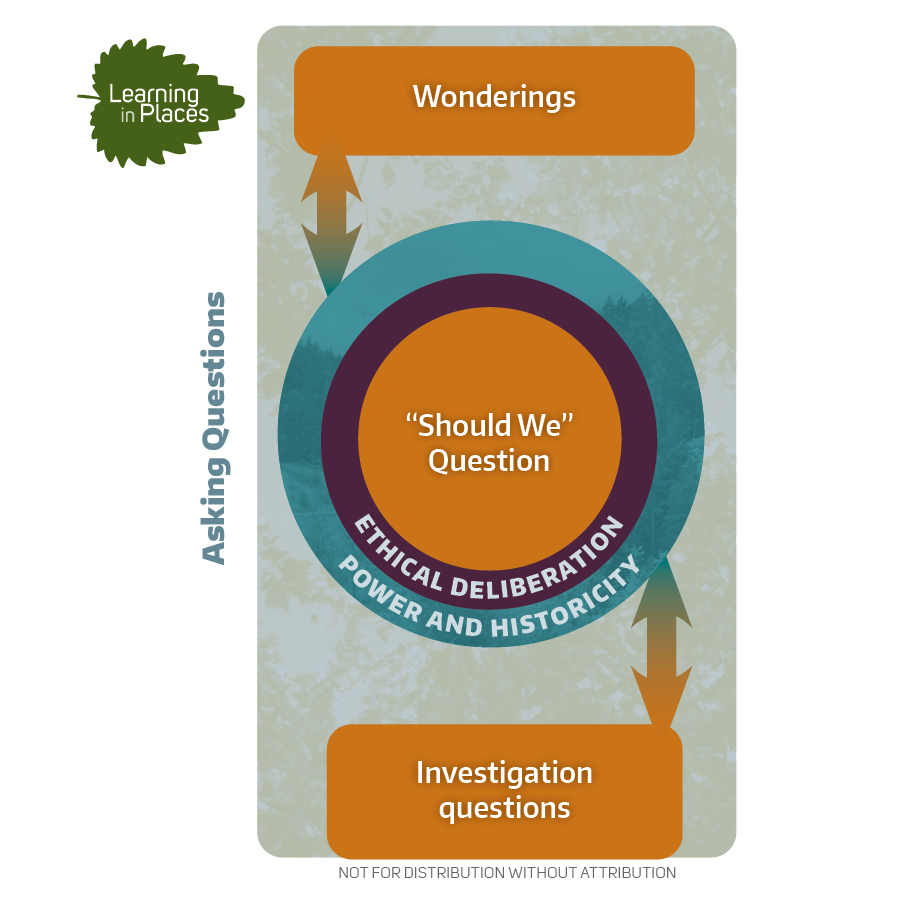Learning Frameworks Overview
Research has shown that when learner questions are centered in science activities, those questions can drive sense making and guide the formation of field-based investigations.
Additionally, learner questions can offer insight into how they understand scientific concepts, and importantly, how they are making connections to personal experiences and/or family and community knowledges and practices. Making these connections visible is critical in the design of effective and equitable science learning environments. In order to support this, educators can model and scaffold how to ask questions that lead to ethical deliberations and decision-making about socio-ecological systems.
Wonderings, “Should We”, and Investigation Questions Framework
Wondering is central to sophisticated scientific field-based observation and questioning. Observations generate curiosity, wonderings, and questions that open up opportunities for learners to engage in speculative thinking about possible relationships, drawing their attention to the unknown.
Asking “what should we do,” and deliberating in order to make a decision is something that all people do everyday. In field-based science, deliberating and then making decisions involves utilizing knowledge, clarifying values and goals, and exploring potential impacts on humans and more-than-humans, at micro and macro scales, across multiple timescales, and from powered positions.
Investigation questions about the social (human) and natural world (more-than-human) are a unique type of question that can be explored through systematic observation and other field-based science methods.
